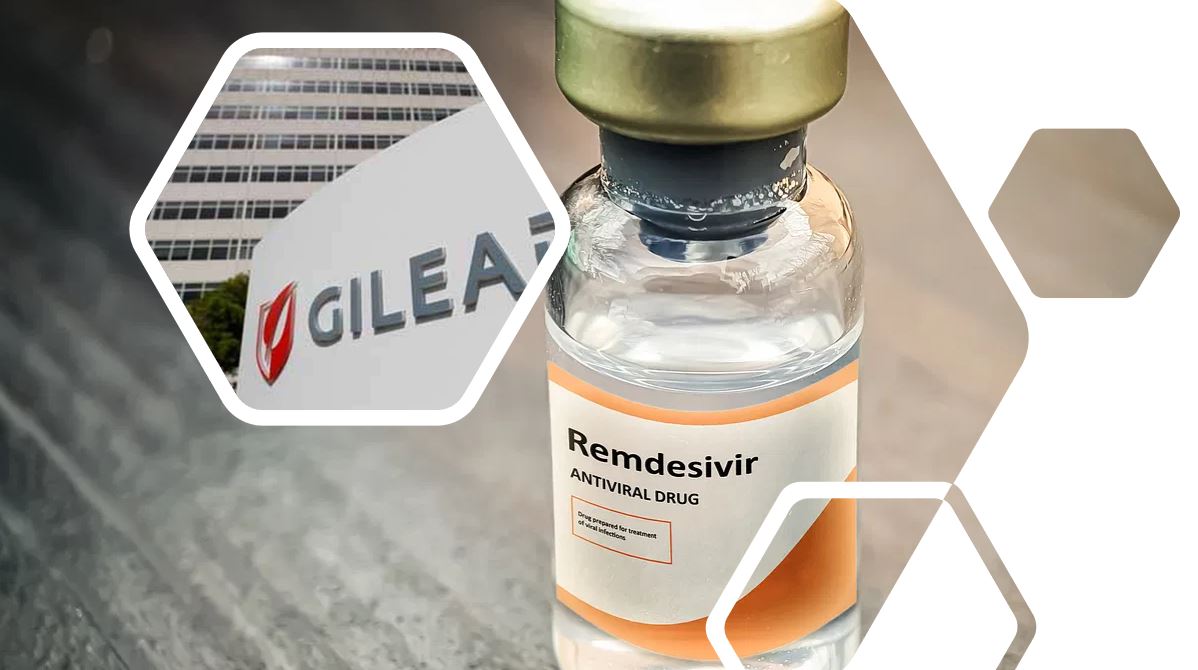News & Trends - Pharmaceuticals
Gilead’s remdesivir for COVID19 – does it really work?

Pharma News: Preliminary results of a trial showed that advanced COVID-19 patients who received remdesivir recovered faster than similar patients who received a placebo. The results from the randomised, controlled trial involving 1,063 patients, are in contrast to a separate smaller trial published overnight, which showed no clinical benefit for remdesivir in COVID-19.
So does it work or not? Australian experts provide important insights.
Dr Phillip Reece, an Honorary Senior Fellow in the Department of Pharmacology and Therapeutics at the University of Melbourne, said “The trial of remdesivir reported in the Lancet by Wang et al was stopped early due to difficulty in enrolling the target number of patients. The study was conducted in China and the number of new cases suitable for enrolment in the trial has declined substantially over the last few weeks as lockdown measures implemented by the Chinese have had the desired effect. Hence there were too few patients to complete the trial.
 Register FREE and join 22,000+ industry professionals receiving the latest industry news and engaging content from Health Industry Hub, the ONLY one-stop-hub connecting Australia’s Pharma, MedTech and Biotech industry professionals.
Register FREE and join 22,000+ industry professionals receiving the latest industry news and engaging content from Health Industry Hub, the ONLY one-stop-hub connecting Australia’s Pharma, MedTech and Biotech industry professionals.
The National Institute of Allergy and Infectious Diseases (NIAID) sponsored trial was positive and reduced the duration of symptoms of COVID-19 infection by 4 days. That is, patients receiving placebo had a duration of symptoms of 15 days and those receiving remdesivir, 11 days. The results were reported to be statistically significant. The trial also suggested there was a survival benefit but this was not statistically significant. The trial recruited a total of 1,063 patients and we must assume that it had the necessary statistical power to support the conclusion reported but that will become clearer with a more detailed report.
This appears to be the first clinical trial to report a statistically significant benefit of an antiviral against COVID-19. The fact that there was a reduction in duration of symptoms of 31% in hospitalised patients with advanced COVID-19 and lung involvement is encouraging.
The drug is still in early development and there are therefore limited supplies, hence it is not yet available to the general public in the United States or anywhere else. The FDA in the USA will have to determine what further information is required, including information on the safety of the drug, before it can be made widely available.
Following reports that hydroxychloroquine and combinations of HIV protease inhibitors do not seem to be effective against COVID-19, remdesivir stands alone at this time as the only antiviral drug to be potentially useful in treating patients with COVID-19 infections.”
You may also like PRIME Awards 2020 call for entries – The only awards program dedicated to recognising excellence within Australian healthcare communications, is now open for entries.
Professor Johannes Alffenaar, Chair of Clinical Pharmacy at the University of Sydney, said “Remdesivir inhibits a part of the replication cycle of SARS-Cov-2. In order to be effective, the right amount of drug needs to be at location of infection at the right time. At this moment it’s not crystal clear what that concentration should be and whether it is reached with the dose used in the trial. Also, the timing of starting the drug is critical. If the virus has already replicated massively in the body the drug is not able to turn the tide. For COVID-19 it’s not known yet when treatment should be started. It could well be that it should be started at the first symptoms to inhibit viral replication in time. Moreover, in the trial part of the patients received lopinavir-ritonavir, interferon alfa-2b, antimicrobial drugs and corticosteroids. All thought to be potentially beneficial interventions. This makes it more difficult to pick up any response related to remdesivir.
However, the biggest problem still remains the sample size of the study. As COVID-19 is a self-limiting disease in most patients a very large sample size is needed to see an improvement related to the intervention which was not fulfilled in this trial. As mortality was approximately 15% the severity of disease may not have been as severe as originally anticipated making if even more difficult to see a difference compared to placebo.”
News & Trends - MedTech & Diagnostics

AI-assisted colonoscopy boosts polyp and adenoma detection
MedTech & Diagnostics News: In a standard colonoscopy, as many as one-third of colorectal polyps and adenomas can go by […]
MoreNews & Trends - Pharmaceuticals

‘Every day of delay is costing Australian lives’, says Rare Cancers Australia CEO
Pharma News: Rare Cancers Australia (RCA) has voiced its disappointment alongside the pharmaceutical industry following the Pharmaceutical Benefits Advisory Committee’s […]
MoreNews & Trends - Pharmaceuticals

Government’s silence on Senate report leaves cancer patients in limbo
Pharma News: NeuroEndocrine Cancer Australia has urged the government to respond to the Senate report on equitable access to diagnosis […]
More